20-May-2019
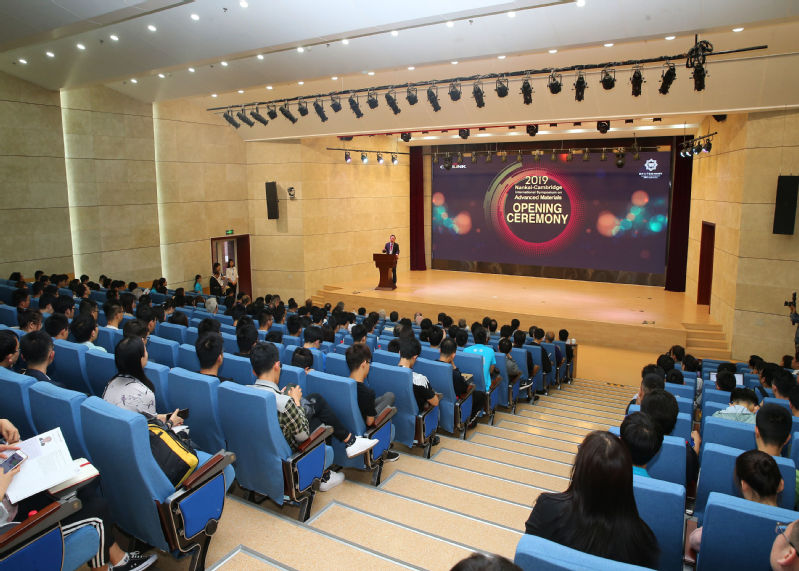
2019 Nankai-Cambridge International Symposium on Advanced Materials was held on the Jinnan Campus, Nankai University. The President of Nankai University and academician of Chinese Academy of Engineering, Prof. Xuetao Cao; Chair of the symposium and fellow of Royal Society, Prof. Anthony K. Cheetham; chair of the symposium and professor of Department of Materials Science and Metallurgy, University of Cambridge, Prof. Vasant Kumar; academician of Chinese Academy of Sciences, Prof. Can Li; Vice President of Royal Society and professor of University College London, Prof. Richard Catlow; the President of Lanzhou University and academician of Chinese Academy of Sciences, Prof. Chun-Hua Yan gave their opening remarks on the opening ceremony. Prof. Ekhard Salje, fellow of Royal Society and professor of University of Cambridge; Prof. Bill Clyne, fellow of Royal Society of Engineering and professor of University of Cambridge; Prof. Bin Liu, fellow of Singapore Academy of Sciences and professor of National University of Singapore; Prof. Upadrasta Ramamurty, fellow of Indian Academy of Sciences and professor of Nanyang Technical University; the President of South China University of Technology and academician of Chinese Academy of Sciences, Prof. Song Gao attended the opening ceremony as distinguished guests. Prof. Long Zheng and Prof. Guoran Li hosted the opening ceremony on behalf of Nankai University and School of Materials Science and Engineering.
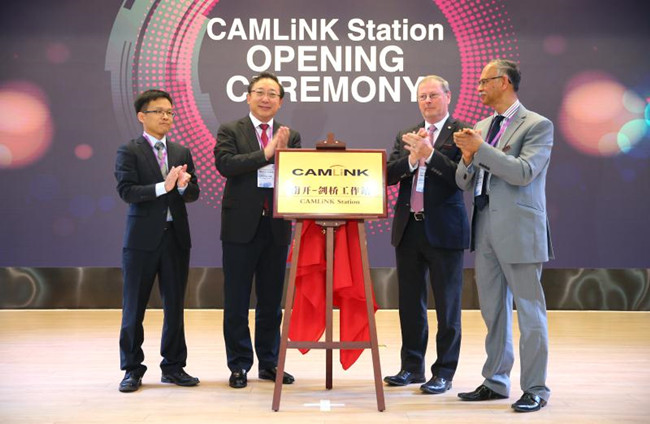

President Xuetao Cao gave his welcome to all guests and colleagues during the opening ceremony. He stressed that 2019 was the 100th anniversary of Nankai University, and international collaboration was an important step for the development in the university’s next century. He further stressed that materials science was one of the 5 “double first” projects at Nankai, this symposium was an excellent opportunity to bring materials scientists internationally to share their ideas and discuss future trends.
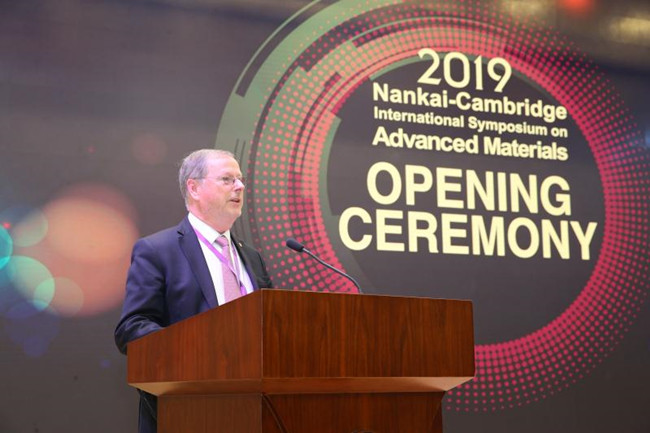
Prof. Anthony K. Cheetham spoke that Nankai University was one of the best universities of the world, whose comprehensive layout, including natural sciences, arts, laws and humanity, provided an superior opportunity to interdisciplinary collaboration. He further mentioned this symposium would facilitate the interactions and collaborations for scientists between Nankai and the world.

Prof. Vasant Kumar said he had been interacting with Nankai University for years, and was very honored to be a chair professor at Nankai. He further expressed he would strengthen scientific collaboration with Nankai.
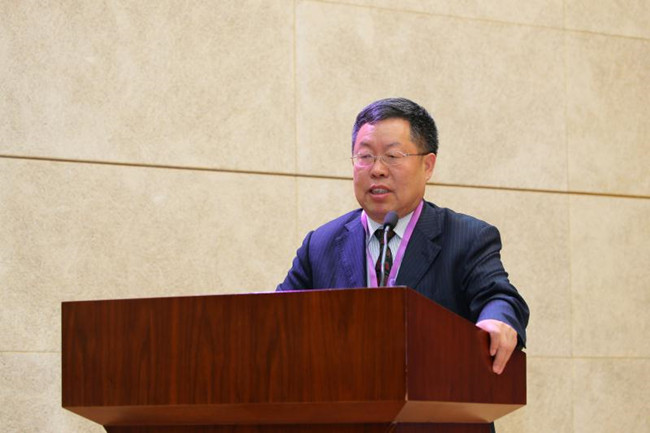
Prof. Can Li addressed that School of Materials Science and Engineering was young but very ambitious. The school aimed to be the top materials science school in the world and had been working hard on this goal. The symposium and the foundation of CAMLiNK Station would push the materials science research at Nankai towards the world frontier and strengthen the international fame of the school.
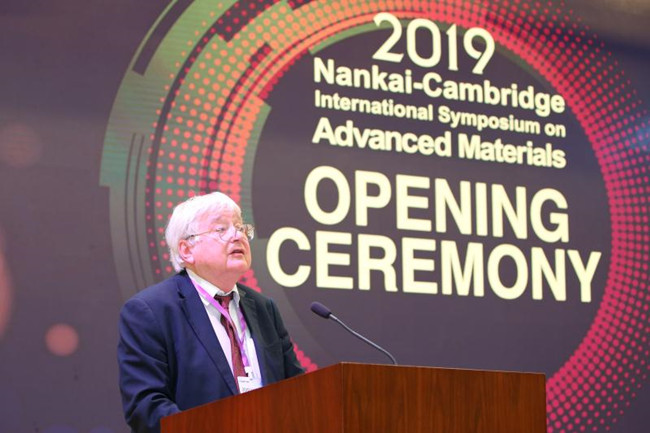
Prof. Richard Friend spoke on behalf of the Royal Society and introduced the international collaborations between the Royal Society and China. He expressed that he was very honored to be at Nankai and would take this nice opportunity to strengthen the connection between the Royal Society and Nankai.
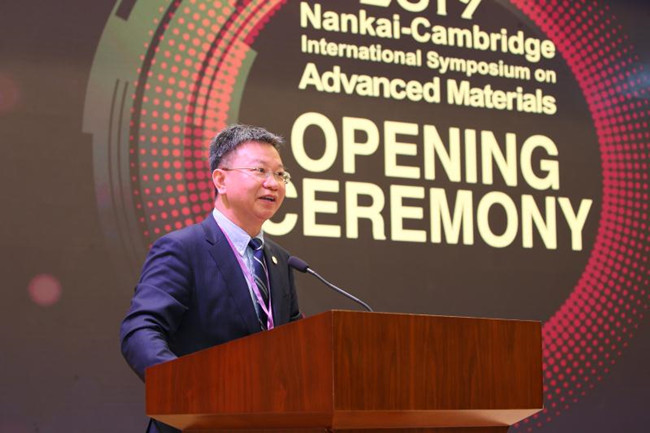
President Chun-Hua Yan gave his welcome to all the guests and were very proud of Nankai’s achievement especially on the occasion of 100th anniversary. He hoped this symposium could be a model event for the China-UK bilateral collaboration and also an opportunity for strengthening international collaboration on materials science.
The conference runs from 20th to 22nd-May-2019 and brings together materials scientists, chemists, physicists and engineers from about 10 countries to discuss common interests and multidisciplinary ideas on advanced materials. In the program, there are an advanced forum and a youth forum, which will focus on topics covering solar cells, lithium batteries, optoelectronic materials, properties of materials at extreme conditions, artificial intelligence in materials science and materials processing techniques.Many faculties, administrative staff and students from School of Materials Science and Engineering and other sister schools and departments also attended the symposium.
